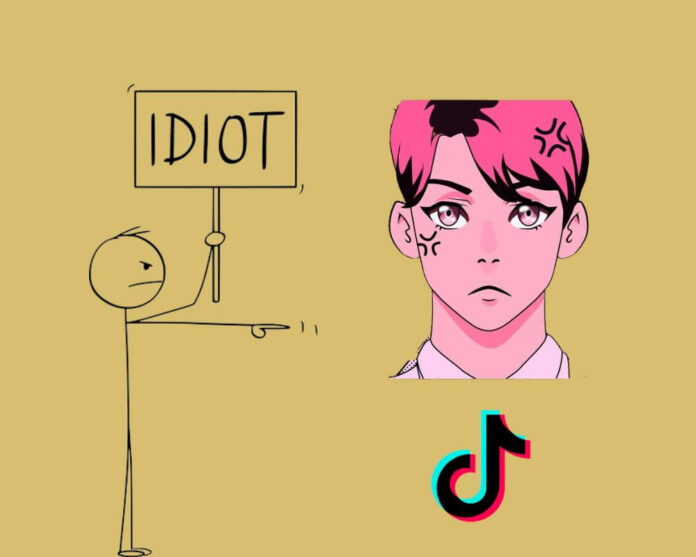You’re watching TikTok. Someone shouts “BAKA!” with fake rage, and the comments go wild. No one explains it. No subtitles. No definition. It’s just a sound — loud, dramatic, and instantly recognizable. But even if the word still means “idiot” in Japanese, TikTok didn’t keep that meaning intact.
What It Actually Means on TikTok
In Japanese, baka (馬鹿) means “idiot,” plain and direct. Tone and region change how offensive it feels — it’s casual in Tokyo, but can be rude in Kansai. It’s not slang. It’s not cute.
TikTok changed that. Creators scream “baka!” while roleplaying anime characters — especially the tsundere type that lashes out when flustered. It became a signal for fake anger, not real insult.
Used this way, baka turned into a script device. Not language. Not communication. A loud cue for “I’m mad, but make it funny.” That shift is where confusion starts.
TikTok Rewards Sound, Not Meaning
The real reason baka spread isn’t cultural — it’s algorithmic. The word entered TikTok through anime audio: clipped scenes of girls shouting “baka!” mid-meltdown. These were short, punchy, and perfect for lip-sync content.
Once a sound gets used enough, TikTok pushes it. So thousands of creators copied the rhythm, even if they didn’t understand the word.
The format was simple:
- Add the audio
- Act annoyed
- End with chaos
Because baka had rhythm and exaggeration, it didn’t need subtitles. It became a meme beat. Viewers learned the timing, not the translation.
Most People Use It Wrong — Or Use It for Nothing
By 2025, baka isn’t always used as a bit. Some creators drop it into random posts with no character or context. Others use it as flirty gibberish. A few still think it’s a made-up TikTok word.
That’s where things break. Baka only works when it’s clearly performative. Without setup or tone, it reads as noise. It loses meaning entirely — not in a fun, viral way, but in a way that feels forced.
The audience sees the difference. That’s why one creator gets laughs, and another gets comments like “this ain’t it” or “secondhand embarrassment.”
Final Take
TikTok didn’t borrow baka to say something. It borrowed it to perform something.
The people who use it best don’t just scream — they commit to the bit. But when you shout a word you don’t understand, you’re not calling anyone an idiot.
You’re volunteering as one.
Related Reads

